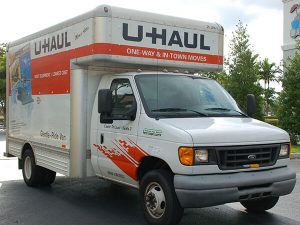 In VIRGIL JENSEN v. U-HAUL CO. OF CALIFORNIA, the Appellate Court upheld the Trial Court’s denial of U-Haul’s motion to compel arbitration with the Plaintiff, Jensen.
In VIRGIL JENSEN v. U-HAUL CO. OF CALIFORNIA, the Appellate Court upheld the Trial Court’s denial of U-Haul’s motion to compel arbitration with the Plaintiff, Jensen.
In Jensen, it was undisputed that Jensen’s boss (who was also the owner, CEO, CFO, Secretary and sole director of the company that employed Jensen) rented the U-Haul truck in question and signed the rental contract that contained the arbitration agreement. It was also undisputed that Jensen was driving the U-Haul truck in the course and scope of his duties as an employee when a tire blew and Jensen was injured.
At issue was whether the arbitration agreement that Jensen’s boss/employer signed would also bind the Plaintiff/employee Jensen. Plaintiff was not a signatory to the agreement nor, allegedly, had any knowledge of it. The U-Haul arbitration agreement broadly provided:
“You and U-Haul agree that any and all Claims . . . between You and U-Haul relating in any way to your rental . . . from U-Haul shall be submitted to binding Arbitration . . . .” It defines the term “‘You’” to include “You and Your respective . . . agents, employees . . . [and] all authorized or unauthorized users of the U-Haul equipment . . . .” The term “‘Claim’” is defined “broadly” to include “any and all legal theories, including but not limited to, all statutory and tort claims, that may be asserted by You.”
The Court began its analysis by noting:
“There is no doubt that plaintiffs’ claims fall within the extremely broad scope of
the arbitration agreement at issue. It is undisputed that Virgil Jensen was a “user” of the
UHCA equipment—we need not decide whether he was an “authorized” or
“unauthorized” user, since the agreement purports to encompass both—and plaintiffs’
claims arise from his use of that equipment. Nevertheless, whatever the breadth of the
contractual language, plaintiffs can only be forced to arbitrate their claims if they are
bound by the arbitration agreement entered into by Mr. Scannell and UHCA.”
The Court recognized that, “Persons are not normally bound by an agreement entered into by a corporation in which they have an interest or are employees.” (Suh v. Superior Court (2010) 181 Cal.App.4th 1504, 1513 (Suh).) More specifically, as a general rule, “[t]he right to arbitration depends on a contract, and a party can be compelled to submit a dispute to arbitration only if the party has agreed in writing to do so.” (Matthau v. Superior Court (2007) 151 Cal.App.4th 593, 598 (Matthau).) “Even the strong public policy in favor of arbitration does not extend to those who are not parties to an arbitration agreement or who have not authorized anyone to act for them in executing such an agreement.” (County of Contra Costa v. Kaiser Foundation Health Plan, Inc. (1996) 47 Cal.App.4th 237, 245 (Contra Costa).)
The Court also analyzed the circumstances in which a non-signatory might be bound to an arbitration agreement including:
“(a) incorporation by reference; (b) assumption; (c) agency; (d) veil-piercing or alter ego; (e) estoppel; and (f) third-party beneficiary.’” (Suh, supra, 181 Cal.App.4th at p. 1513 [quoting 2 Oehmke, Commercial Arbitration (3d ed. 2006 update) § 41.57 at pp. 41-195]; see 1 Oehmke, Commercial Arbitration (3d ed. Aug. 2017 update) § 8.1 [similar].)
The Court noted that, “The California cases binding nonsignatories to arbitrate their claims fall into two categories. In some cases, a nonsignatory was required to arbitrate a claim because a benefit was conferred on the nonsignatory as a result of the contract, making the nonsignatory a third party beneficiary of the arbitration agreement. In other cases, the nonsignatory was bound to arbitrate the dispute because a preexisting relationship existed between the nonsignatory and one of the parties to the arbitration agreement, making it equitable to compel the nonsignatory to also be bound to arbitrate his or her claim.” (Contra Costa, supra, 47 Cal.App.4th at p. 242.)”
Finding none of these exceptions existed in Jensen’s case, the Court held that the Plaintiff was not bound by the arbitration agreement.
So, while plaintiff’s employer is protected by Worker’s Compensation, it appears that U-Haul will be facing a jury.
